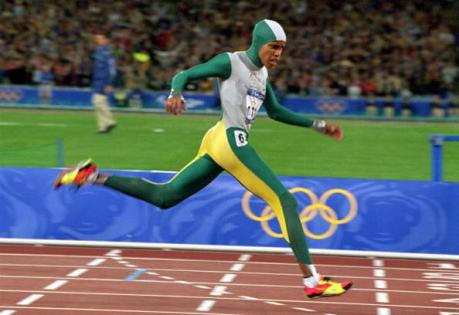As the London Olympics gets underway officially with its opening ceremony on Saturday morning (Australian time), it’s worthwhile taking note of what drove their re-establishment in 1896.
The push to establish the Olympic Games came from the founding father of the modern Olympics, Baron Pierre de Coubertin of France, as the corollary of work he spent almost a lifetime trying to achieve to reform the French education system.
Coubertin passionately believed in the importance of education to the advancement of society – as politicians also espouse today – and he was an admirer of English and, to a lesser extent, American education systems of the time which incorporated sport into their public (or what we would call private) schools and universities. For Coubertin, the core of sport was its contribution as a unifying moral value and as preparation for life in a democratic society.
Although Coubertin’s educational reforms never really materialised in France, he continued to shape his views further through thought, travel and debate. They developed to form not only the basis of the ‘Olympic ideal’ but also the rationale – if not the practice – of other international sporting organisations and that is this: if an individual can be the best he or she can be through education of the ‘whole person’, then it can also help society; and if sport can help develop individuals and society, then it should have an impact on the relationships between nations also; and if nations can come together in a common context – sport – then the world can be a better place.
Coubertin was not alone. It was a period in history when the concept of ‘internationalism’ and secularism were being advanced, particularly within Europe, and other international organisations were established such as the International Red Cross (1863), the Esperanto Movement (1887), world football’s governing body, FIFA (1904) and the Scouting Movement (1908).
Although the idea was not clearly formed, Coubertin first raised the suggestion of re-introducing a modern Olympics in 1892, which was agreed to take place in Athens in 1896. Australia was one of ten countries to take part in the first of the modern Olympics (with Edwin Flack winning the 800m and 1500m) and one of only two countries to have participated in every summer Olympic Games since.
Many will say – and there is plenty of evidence to support it – that the Olympic Games of the 21st century are so far removed from Coubertin’s vision that they are no longer enjoyable. It is tempting, when looking at the scandals that have rocked organisations such as the International Olympic Committee (IOC) and FIFA, to think that all that is great and good about sport has been lost – or so far away from being what it should be, that it may not be possible to enjoy sport properly again in our life time.
But, still, we watch the Olympics. We watch for both the courage and the glory of individual and team efforts and achievement. We revel when one of our own excels.
In doing so, we are connected with Coubertin’s aims: because in watching courage and achievement, and in celebrating one of our own winning, we help define ourselves.
After all, from an Australian perspective, who can forget that Herb Elliott’s 1500m world record run in 1960 would have won him the Gold Medal at seven of the nine subsequent Olympic Games until 1996? Or Dawn Fraser winning her third consecutive Gold Medal in 1964 after a car accident only seven months beforehand which had killed her mother? Or Peter Norman standing up for what was right as the Silver Medallist in the 200m sprint with Tommie Smith and John Carlos at Mexico City in 1968? Or Norman May’s call at the 4 x 100m men’s swimming relay in 1980? Or the same race 20 years later at the “best Olympic Games ever” (Sydney)? Or the moment when Cathy Freeman rounded the bend in the 400m and all we armchair experts knew she had it won?
These moments – and many more at the Olympic Games and in other sport - become part of our history and our narrative: one that is worth reflecting on, remembering, enjoying and, in an ideal world – just as Coubertin intended - help make us better as individuals, as a society, as nations and as people.
Go Australia!








 Agree (4)
Agree (4) Disagree (
Disagree (







__small.png)










